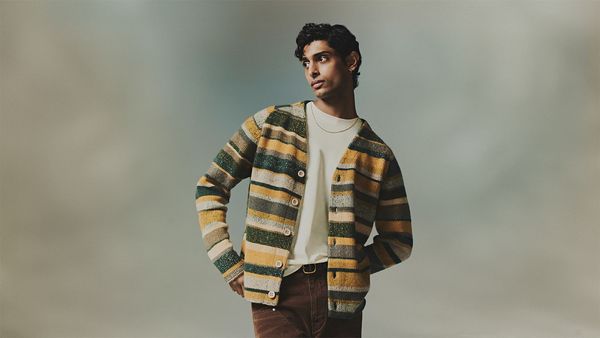5 Sustainable Menswear Designers Proving That Eco-Fashion Is Far From Boring

Image by: Filippa K
Stylish and sustainable? Indeed. A whole new generation of menswear designers and brands are shaking up the game, proving that you don’t need to neglect aesthetics when shopping consciously. Here are five of PORT’s favourites.
Over the last year or two, ethical, sustainable and conscious fashion hasn’t just been a trend, it’s become an essential responsibility of an industry that relies on cheap fabric, exploitative labour and a lengthy, complicated supply chain. With our growing awareness of the industry’s impact on the planet, it’s never been more necessary to know where our clothes are from, what they’re made of, who made them and where they will end up when we are done. This is not to say that sustainable fashion is boring - far from it. Forget notions of ‘crunchy, granola’ hippies, the newest generation of ethical menswear designers show that style and consciousness easily goes hand in hand, partnered with daring designs and innovative use of technology and materials.
So, in celebration, here are PORT’s five favourite sustainable menswear designers - those who make ethics a focal point of their design process.
Incorporating the ethos of ‘Remade, Reduced, Recycled’ into his designs, Christopher Raeburn’s ethical design sensibilities are far from a secret. This is a designer that genuinely melds high fashion with sustainability - clothing lines include Ræmade (designs made from surplus or remnant materials), Ræcycled (designs made from recycled PET) and Ræduced (a jersey collection made with 100% organic cotton).
Just 12 years after Rapanui started up in a shed and with £200 to its name, it’s become a go-to for brilliant ethical basics. Based on the Isle of Wight as a social enterprise to combat youth unemployment, Rapanui was set up to challenge how the fashion industry runs. ‘We’re not trying to work towards sustainability,’ their mission statement reads, ‘Our business is built on it.’ Now, in 2020, Rapanui works on a waste-free production system, where unwanted pieces can be sent back to the brand to be remade and new orders are produced in real time, one at a time, only after they have been ordered. Their UK factory is solely powered by renewables and another of their factories in southern India is powered by wind and solar energy. Their closed-loop water system for dyeing clothes filters water so well it’s good enough to drink.
Founded by rock climber and activist Yvon Chouinard in 1973, Patagonia has long had environmentalism at its heart. It doesn’t shy away from the fact that it creates products using fossil fuels and the brand’s carbon emissions, instead they have revised their supply chain and endeavour to remain transparent. Its mission statement reads: ‘Build the best product, cause no unnecessary harm, use business to inspire and implement solutions to the environmental crisis’. While Patagonia’s designs are already made to be durable and long lasting, in 2011 the brand ran a ‘Don’t Buy This Jacket’ campaign to tackle consumerism and currently run a Worn Wear programme to discourage customers from buying more than they need; the programme restores old Patagonia pieces back to life, thus inspiring a culture of repairing and repairing, rather than buying new.
This Cornwall-based brand doesn’t just create amazing surf- and south coast-inspired gear (think bright, sunny colours, functional, utilitarian designs, sea-worthy knitwear and technical sports and outerwear), it also puts the environment first. After all, gear for those who love surfing is naturally going to have a focus on protecting the sea. Renewable and recyclable textiles and biodegradable natural fibres and finishes are used in production, production is kept transparent (there’s a guide to each of Finisterre’s factories on their website) and the brand offers repairs for damaged pieces.
Swedish brand Filippa K is fully committed to sustainability, from the materials they source (and how they source them), to their production line. They publish their own Sustainability Reports and Fair Wear Foundation Brand Performance Checks online and a detailed product origin for each piece showing the details of the manufacturers used can also be found on their website. Currently Filippa K are committed to achieving, by 2030, the ‘use of only sustainable and recyclable materials for all products’, ‘full traceability and transparency throughout the supply chain’, ‘only producing what is needed and purchasing exact material quantities’ and ‘good and fair working conditions for all people working with [their] products’. To top things off, their designs ooze with easy, nonchalant Swedish cool.
May 07 2020 by Esther Newman



